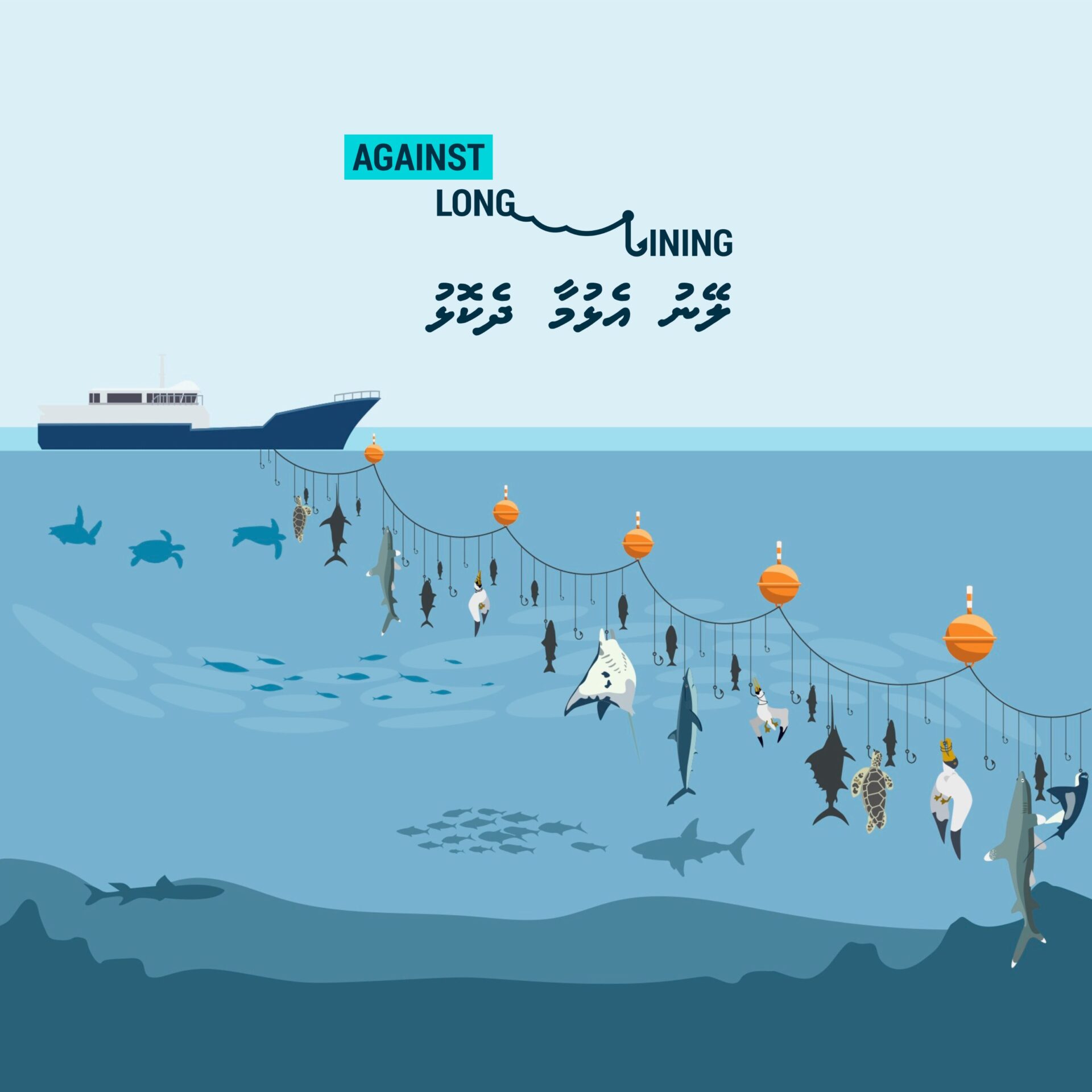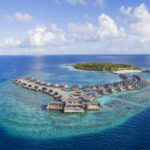
Male’, Maldives, 29 August 2024 – An international petition opposing the Fisheries Ministry’s controversial proposal to permit longline fishing in the Maldives has rapidly gained momentum, collecting over 20,000 signatures in just six days. The petition reflects widespread concern over the potential environmental and economic fallout that longlining could bring to the Maldives’ tourism and fishing industries.
The petition, accessible at Only One, urges the Maldivian government to reconsider its plans to allow longlining, a fishing method known for its destructive impact on marine life. Longline fishing has been criticized for killing a range of marine species, including sharks, rays, turtles, dolphins, and seabirds. This has sparked fears that the practice could significantly harm the Maldives’ reputation as a premier destination for marine tourism.
Tourism and fishing are cornerstones of the Maldivian economy, with the 2022 Maldives Visitor Survey revealing that 28% of tourists visit the Maldives specifically for diving and snorkeling. A 2019 academic study further highlighted that businesses tied to shark diving generate over $51 million annually, with direct revenue from shark divers alone estimated at $14 million. The potential loss of these attractions due to the harmful effects of longlining could lead to a significant decline in tourism revenue.
Minister of State for Fisheries and Ocean Resources, Mohamed Muthalib, has attempted to downplay concerns, stating that only 2% of the bycatch from longlining would be sharks. However, critics argue that even this percentage is alarming given that sharks are an endangered species. A comparative study in Barbados found that a single live reef shark can contribute $250,000 to the economy over its lifetime, far exceeding the $50-60 gained from selling it after capture.
The Maldives has long been celebrated for its sustainable fishing practices, notably pole-and-line and handline fishing, which have earned the country a global reputation for producing the world’s most sustainable tuna. Major international supermarkets, such as Marks & Spencer and Waitrose, proudly stock Maldivian skipjack tuna due to its eco-friendly credentials. Introducing longlining could tarnish this hard-earned reputation, potentially jeopardizing international markets for Maldivian tuna.
Local groups and environmental organizations have voiced strong opposition to the move. The Bodu Kanneli Masveringe Union warned that longlining would cause “significant damage” to both the environment and the socio-economic well-being of the Maldivian people. The Miyaru Programme, a local shark research NGO, emphasized the critical role of the Maldives Shark Sanctuary in protecting endangered species, stating that longlining would push many sharks closer to extinction.
The campaign against longlining has also gained significant traction on social media, with the hashtag #AgainstLonglining rallying support from hundreds of people within the Maldivian dive tourism industry. Ahmed Inah, owner of Pelagic Dive Fuvahmulah, voiced his concerns, stating, “Since 2010, the Maldives has been a safe haven for sharks, and it has shown a massive recovery of shark populations. The Ministry is trying to find a loophole to allow longline fishing.”
Despite surpassing its initial goal of 20,000 signatures, the petition continues to gather support, reflecting widespread opposition from Maldivians and the international community. The petition has been submitted to the Ministry of Fisheries and Ocean Resources, the Ministry of Climate Change, Environment and Energy, and the President’s Office.
As the debate over longlining intensifies, the Maldives faces a crucial decision that could have lasting impacts on its marine ecosystems, tourism, and global reputation as a leader in sustainable fishing.







